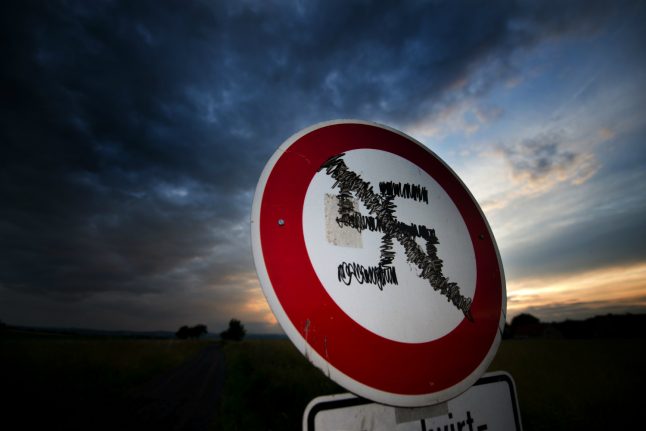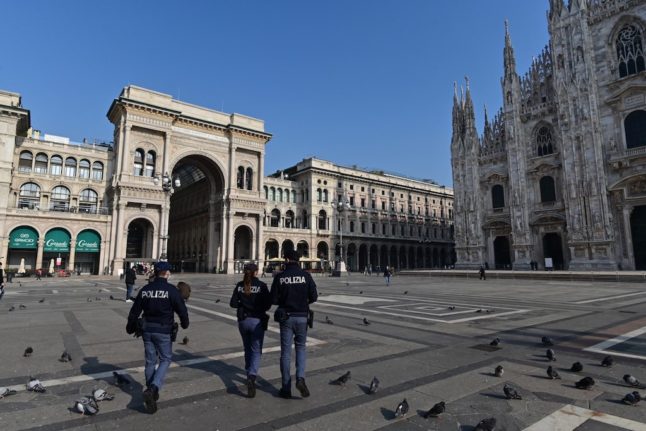Following a deadly shooting in Halle last week in which a synagogue was targeted, Germany has stepped up security across the country.
Now the Federal Criminal Police Office (BKA) has warned that 43 right-wing extremists are at risk of committing an attack in Germany – 10 more than at the beginning of the year, reported Spiegel on Tuesday.
“Far-right crimes endanger our democracy,” warned BKA chief Holger Münch. “The situation is serious.”
In addition to foreigners and the Jewish community, politicians and other public figures are also being targeted by far-right extremists.
Last week Stephen Balliet, 27, confessed to the anti-Semitic attack at a synagogue in the eastern German city of Halle that left two people dead.
It came three months after the assassination-style murder of pro-migrant politician Walter Lübcke in the western city of Kassel, allegedly by a known neo-Nazi.
Lübcke's killing shook Germany, raising questions about whether it has failed to take seriously a rising threat from far-right extremists.
Investigators have been probing the extent of suspect Stephan Ernst's neo-Nazi ties and whether he had links to the far-right militant cell National Socialist Underground (NSU).
Focus on social networks, gaming platforms and messaging services
In order to counteract far-right acts of terrorism, security authorities want to increase the surveillance of agitators and potential perpetrators on the Internet, and restrict the activities of known groups.
Social networks, gaming platforms and messenger services are increasingly being misused by extremists as communication spaces to spread damaging images and discuss crimes, said Thomas Haldenwang, the president of Germany's domestic intelligence service, the Federal Office for the Protection of the Constitution (BfV).
Haldenwang added that intelligence services would not be able to uncover every single case but that they should do everything possible to monitor Internet activity more effectively.

People lay tributes outside the synagogue in Halle last week. Photo: DPA
Last week Interior Minister Horst Seehofer said there are an estimated 24,000 far right extremists in Germany. He added that half of them are considered potentially violent with “a very high affinity for firearms.”
READ ALSO: German government warns of elevated risk of far-right attacks after anti-Semitic shooting
“The virtual globalization of far-right terrorism and a new type of perpetrator who is both an imitator and wants to generate imitators pose new challenges for the security authorities,” said Haldenwang, recalling the attacks in Christchurch in New Zealand and El Paso in America.
“Virtual groups can form situational networks that are much more orientated around action and heterogeneous in their composition than has been the case with rigid far-right extremist organizations so far.”
Demands for mores staff
As well as combing the Internet more intensively than before for indications of the radicalization of individual extremists, the intelligence service and police want to analyze groups belonging to the so-called “New Right” – which include, for example, the Identitarian Movement (Identitäre Bewegung).
They also want to increase the pressure on far-right extremist groups through weapons and tax law measures in cooperation with other authorities.
While Germany is one of the most difficult countries to acquire a gun, extremists often turn to the black market or underground suppliers.
The domestic intelligence service says it plans to bring in around 300 new members of staff to carry out these tasks.
Meanwhile, the Criminal Police Office has requested 440 additional positions.
READ ALSO:



 Please whitelist us to continue reading.
Please whitelist us to continue reading.
Member comments